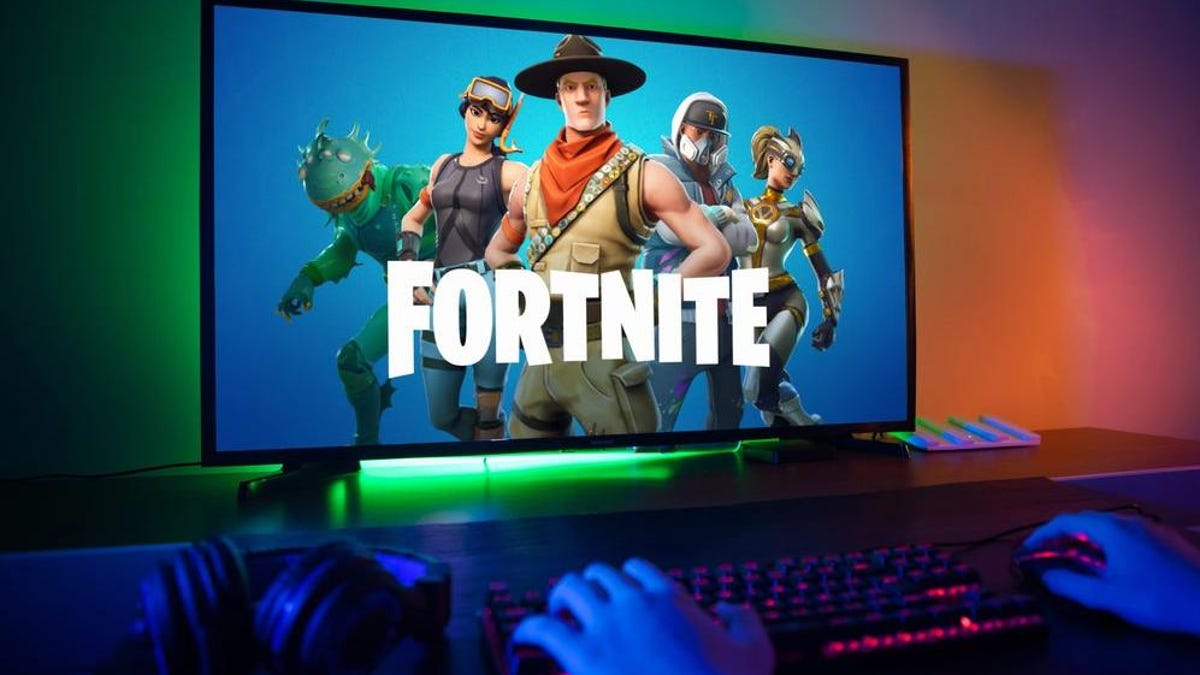
Fortnite will pay out millions of users as part of a settlement it reached with the U.S. Federal Trade Commission (FTC), it announced on Tuesday. The FTC claimed Fortnite’s parent company, Epic, used deceptive tactics to get users to make unwanted purchases, in some cases, without their parent’s knowledge.
The game’s parent company agreed to a record settlement of $520 million in December, part of which will go to more than 37 million potentially impacted Fortnite users who file a claim and may be entitled to compensation. Fortnite was ordered to disburse $245 million of their settlement to users for misleading players, including young users, which the FTC said violated the federal children’s privacy law.
Advertisement
“The company charged parents and gamers of all ages for unwanted items and locked the accounts of customers who disputed wrongful charges with their credit card companies,” the FTC said in a news release addressing the settlement. The agency added that it began sending emails to Fortnite users on Tuesday and will continue to notify additional users for one month.
U.S. users can now fill out a claim form stating they were “charged for unwanted purchases, and have until January 17, 2024 apply for a refund.” The refunded amount will depend first on whether the user’s claim is approved as well as how many people file a claim.
Advertisement
Advertisement
The FTC took action against Epic last year, alleging that the company had “deployed design tricks, known as dark patterns, to dupe millions of players into making unintentional purchases.”
Fortnite is free to download but users are required to pay for in-game items including costumes and dance moves, and the complaint filed by the FTC stated that the company allowed minors to “rack up unauthorized charges without any parental involvement.”
The “dark patterns” used in the game would charge users for attempting to remove the game from sleep mode, by pressing a button to preview an item, or while the game was loading. When customers notified Epic of the unauthorized charges, the complaint said users were locked out of their accounts and lost all purchased content. The complaint further claimed that even after unlocking the accounts, Epic warned customers “that they could be banned for life if they disputed any future charges,” the agency said in a December news release.
A separate complaint filed by the FTC further claimed Epic collected personal information from users under 13 years of age without notifying the minor’s parents or obtaining their consent. It also accused Epic of enabling live on-by-default text and voice communication for all users and matching children and teens to play together.
Advertisement
“As our complaints note, Epic used privacy-invasive default settings and deceptive interfaces that tricked Fortnite users, including teenagers and children,” FTC Chair Lina M. Khan said in last year’s news release. “Protecting the public, and especially children, from online privacy invasions and dark patterns is a top priority for the Commission, and these enforcement actions make clear to businesses that the FTC is cracking down on these unlawful practices.”
At the time of the initial settlement, Epic said in a blog post: “No developer creates a game with the intention of ending up here.” It added, “We accepted this agreement because we want Epic to be at the forefront of consumer protection and provide the best experience for our players.”
Services Marketplace – Listings, Bookings & Reviews